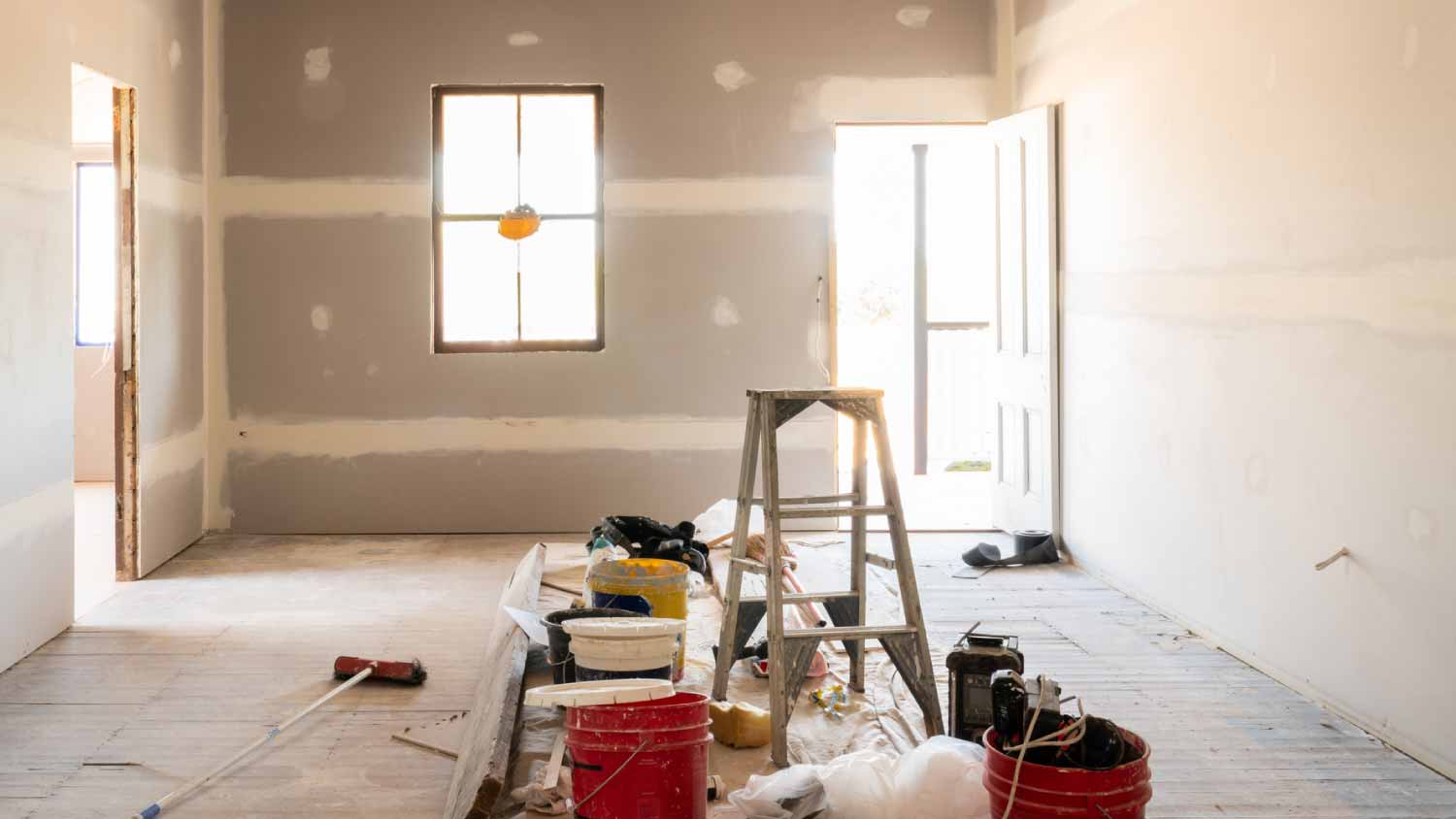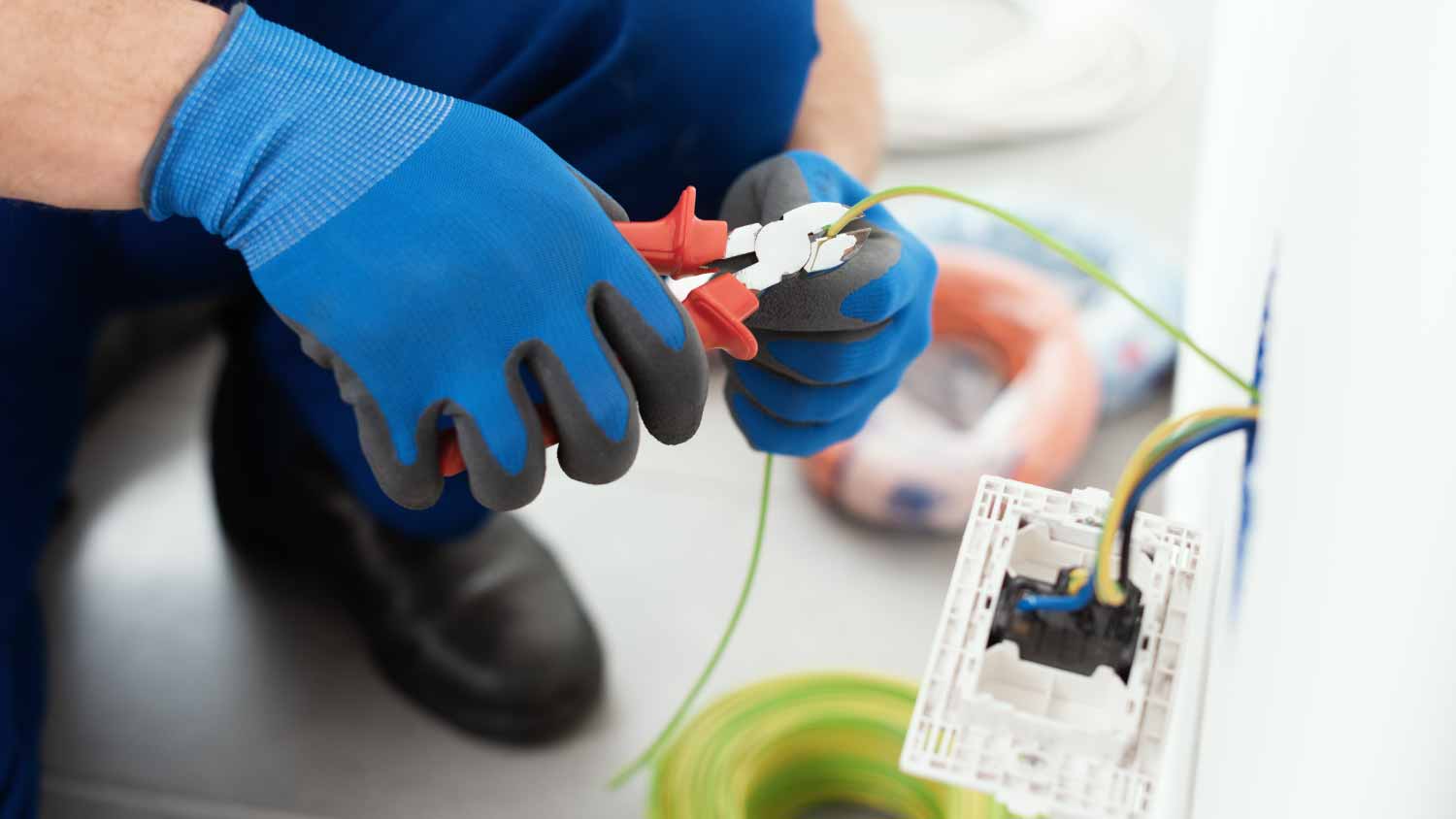How Long Does It Take to Rewire a House?
Here's how long it takes to rev up your home with rewiring


Most homes need rewiring every 25 years, but if you plan to install newer, bigger appliances, you’ll want to rethink your electrical system earlier to meet those increased power needs. Or, if you have an older home, you may need to update your wiring to meet all safety requirements and local codes.
Whatever the reason for the electrical overhaul, you’ll need to hire a professional electrician to do the job. But how long does it take to rewire a house? Here's a guide on what to expect.
How Long Does Rewiring a House Take?
On average, wiring a house takes between three and 10 days. The time commitment needed varies based on a home's size and age. Expect at least seven days for a home older than 40 years. Due to the danger of handling wiring and electrical components, a full home rewiring is definitely a job that a licensed electrician should complete.
Some components of a full rewiring include:
Lights
Sockets
Switches
Control panel(s)
What Does Rewiring a House Involve?

Home rewiring is an intensive job that affects more than just wires. When you remove and replace the wires throughout your home, you’ll have to go through every room's walls, floors, and ceilings.
When rewiring to correct a dangerous situation, electricians often need to lift floorboards or carpets to access faulty or compromised wires. Certain spots may require cutting small holes into your walls to chase wires that replace the old ones. Chasing is important because it allows your electrician to run new cables through the walls to reach the right places.
What Are Some Signs It's Time to Rewire Your Home?

It's important to reassess your home's wiring if you're adding new systems that will tax your home's current electrical capabilities. You may also notice some telltale signs that your wiring is outdated. Call an electrical contractor to discuss rewiring if you notice the following:
Flickering lights
Sparking from outlets
Shocks
Power fluctuations
Room-to-room power variations
Never ignore these signs of an electrical problem, as they’re precursors to potential hazards. Wiring degraded with age can cause sparking, which may catch on to insulation and other flammable dry materials within your home. Additionally, there is an electrocution risk when handling outlets connected to a faulty or overtaxed system. Get the job done safely by calling a local electrician to update your home's wiring.
Cost to Rewire a House
The average cost to rewire a house ranges from $4,000 to $8,000. Costs vary depending on the size and age of the home, the type of wires and their accessibility, and the overall complexity of the project. If you have extensive electrical experience, it could cost less than $1,500 to do a straightforward DIY rewiring job or up to $12,000 to professionally rewire a large, old home, including the cost to install a new electrical service panel.
DIY vs. Hiring a Pro
Unless you are well-versed in electrical safety and confident handling wiring work, this complex job is best left to a certified electrician near you.
If you get things wrong, fixing your mistakes will be costly, and botched wiring can lead to electrical dangers such as fires or electric shocks. DIY house rewiring could also cause bureaucratic bothers. It might not meet the latest local building codes and could invalidate insurance claims relating to electric fires or injuries.
Frequently Asked Questions
While you can technically live in a home while it's being rewired, prepare for some debris and dust if your electrical contractor needs to remove parts of walls, floors, and ceilings to access wires. If you stay home during the project, ask your electrician to cut the power supply to all exposed electrical wires to keep your family safe.
In most cases, walls don’t have to be removed to rewire a house. Much of the new wiring can be run through attics and crawlspaces, and then electricians often use a tool called fish tape to pull the cables through the walls via cut access points that can be easily patched up without requiring any major demo work.
Ideally, a house should be rewired every 25 years to ensure safety, efficiency, and compliance with local codes. If your home was built before 1960, consider rewiring it. If you're noticing poor performance in a newer house, you may need an electrical panel replacement or upgrade instead of a full-house rewiring.





- Home Generator Repair
- Lamp Repair
- Electric Repair
- Generator Installation
- TV Antenna Services
- Emergency Electricians
- Commercial Electricians
- Attic Fan Installation
- Attic Fan Repair
- Exhaust Fan Installation
- Electric Inspectors
- Subcontractors
- Electrical Construction
- EV Charger Installer
- Chandelier Installation
- Doorbell Installation
- Bathroom Fan Installation
- Ring Installers
- Electrical Panel Upgrade
- Why Hire an Electrician? Top Reasons to Consider
- How to Identify Old House Wiring Systems and When You Need to Replace Them
- What Is an Electrical Inspection and When Do You Need One?
- Who To Call for Electrical Problems and When To Get Help
- Home Electrical Repairs: Basic Wiring and Electrical Repairs
- Cloth Wiring: Identification, Dangers, and Solutions You Should Be Aware Of
- The Ultimate Home Inspection Electrical Checklist
- 11 Questions to Ask an Electrician Before Making Your Hiring Decision
- How to Wire a Detached Garage and Why You Should Leave It to the Pros
- 7 Home Electrical Safety Tips That You Should Know










